Search Images
Browse Content (p. 1041)
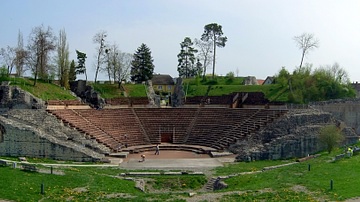
Image
Roman Theatre, Augusta Raurica
The Roman theatre of Augusta Raurica, near Basel, Switzerland. The colony was founded c. 44 BCE and thrived until c. 250 CE. The theatre once had a capacity for 8,000 spectators.
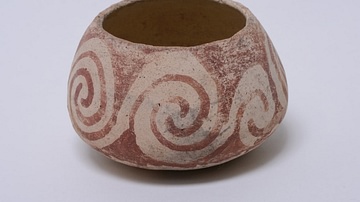
Image
Hohokam Pottery
This Hohokam pottery bowl is made from clay and painted with red glaze. It dates from c. 1000-1200 CE, and came from what is present-day Arizona in the United States. Hohokam pottery tends to be constructed of buff or light brown clay, and...
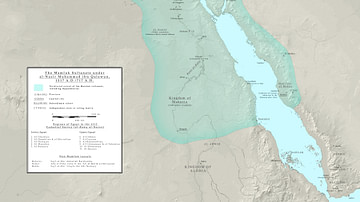
Image
Mamluk Sultanate, 1317 CE
A map indicating the territory of the Mamluk Sultanate based in Cairo, 1317 CE.
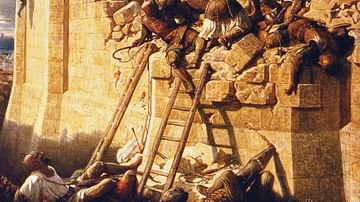
Image
The Siege of Acre, 1291 CE
A 19th century CE painting depicting the Knights Hospitaller defending Acre during the siege by the Mamluk Sultanate in 1291 CE.
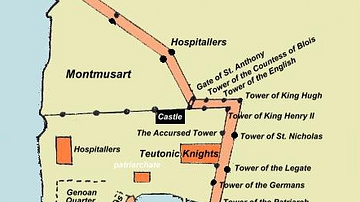
Image
Plan of Acre, 1291 CE
A plan of the city of Acre at the time of the 1291 CE siege by the Mamluk Sultanate.
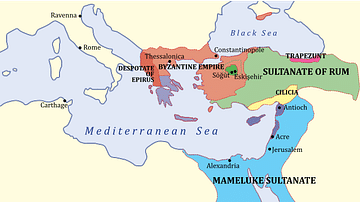
Image
The Levant, 1263 CE
A map showing the various states of the Levant c. 1263 CE.
Light Blue: Mamluk Sultanate
Dark Blue: Latin East
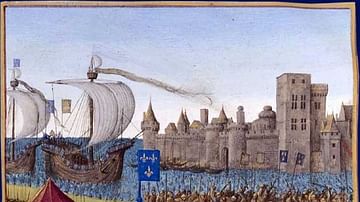
Image
Death of Louis IX at Tunis, 1270 CE
A 15th century CE painting depicting the death of French king Louis IX in 1270 CE during the Eighth Crusade at Tunis.
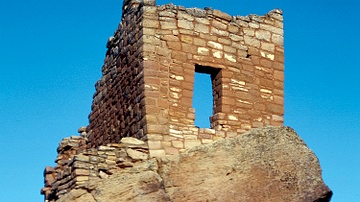
Image
Stronghold House, Hovenweep
A tower or stronghold house, Hovenweep National Monument, Colorado-Utah, USA. c. 1000-1300 CE.

Image
Tower Ruins, Hovenweep
Ruined towers, the 'Cutthroat' group, Hovenweep National Monument, Utah-Colorado, USA. c. 1100-1300 CE.
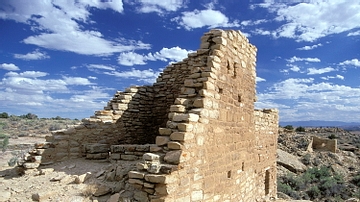
Image
Cajon Tower, Hovenweep
A tower of the Cajon group, Hovenweep National Monument, Colorado-Utah, USA. c. 1000-1300 CE.